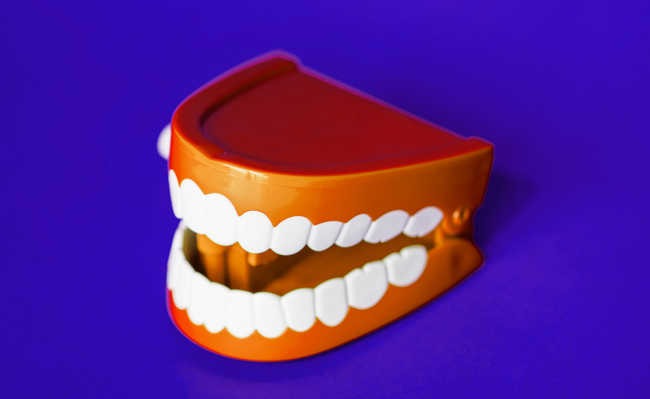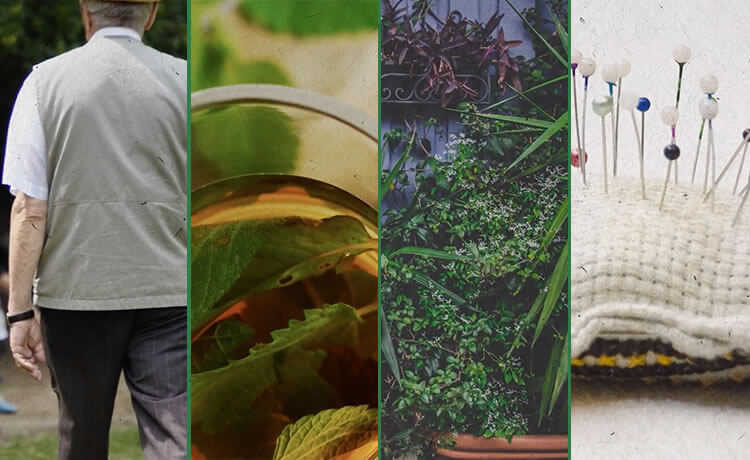Ten Home Remedy Options for Gingivitis
Treatment options for gingivitis are supported by scientific studies

Gingivitis is an inflammation of the gum caused by a bacterial infection. If left untreated, it can progress to a more serious infection known as periodontitis. The good news is that there are affordable ways to avoid this situation. Check out a list of ten home remedy options for gingivitis. But remember: these gingivitis home remedy options do not replace conventional treatment, use them as an adjunct treatment; and if you suspect you have gingivitis, see a dentist.
To prevent gingivitis and the need for home treatment for gingivitis, be sure to take the following precautions:
- Brush your teeth at least twice a day. If you can, brush after each meal;
- Opt for an electric toothbrush to maximize your cleaning potential;
- Check your toothbrush for soft or extra-soft bristles;
- Replace your toothbrush every three months;
- Use a natural mouthwash;
- Visit your dentist at least once a year;
- Do not smoke or chew tobacco;
- Limit your sugar consumption.
Ten Home Remedy Options for Gingivitis
Water and salt
The results of one study showed that the use of water and salt can be very beneficial for gum inflammation, such as gingivitis. Salt is a natural antiseptic that can be dissolved in water. In this way, the water and salt mouthwash can:
- relieve gum inflammation;
- help relieve pain;
- reduce bacteria;
- remove food particles;
- relieve bad breath.
How to make a home treatment for gingivitis with salt and water:
- Add 1/2 to 3/4 teaspoon of salt to a cup of warm water and mix well;
- Rinse the solution in your mouth for up to 30 seconds;
- Spit out the solution;
- Repeat two to three times a day.
But remember that using water and salt too often or too long can have negative effects on tooth enamel. Long-term use can cause tooth erosion due to the acidic properties of the mixture.
Mouthwash with lemongrass essential oil
One study concluded that lemongrass essential oil home treatment is more effective than traditional chlorhexidine mouthwash in reducing plaque and gingivitis levels.
To use lemongrass essential oil as a home remedy for gingivitis:
- Dilute two to three drops of lemongrass essential oil in a glass of water;
- Rinse the solution in your mouth for up to 30 seconds;
- Spit out the solution;
- Repeat two to three times a day.
Lemongrass essential oil is generally safe, but it is very potent. Always start with a highly diluted mixture so it doesn't cause irritation.
Aloe Vera Mouthwash
Research has found that aloe vera is as effective as chlorhexidine in reducing plaque and gingivitis. Both methods significantly reduced the symptoms of the infection. Unlike other mouthwash options, aloe vera juice does not need to be diluted. Before using, make sure the juice is 100% pure.
To use an aloe vera mouthwash:
- Rinse the juice in your mouth for 30 seconds;
- Spit out the solution;
- Repeat two to three times a day.
You should always purchase aloe vera from a safe source and avoid using it if you are allergic to the plant. To learn more about aloe vera, take a look at the article: "Aloe vera: benefits of aloe vera, how to use it and what it is for".
Mouthwash with tea tree essential oil
According to one study, tea tree essential oil mouthwash can be a very effective home remedy for gingivitis, reducing bleeding.
To use tea tree oil mouthwash:
- Add up to three drops of tea tree essential oil to a cup of warm water;
- Rinse the solution in your mouth for up to 30 seconds;
- Spit out the solution;
- Repeat the process two to three times a day.
You can also add a drop of tea tree essential oil to your toothpaste. When trying tea tree essential oil for the first time, use a well-diluted amount. High concentrations can cause:
- allergic reaction;
- rash;
- slight burn.
Tea tree essential oil can negatively interact with:
- some drugs
- dietary supplements
- herbs
To learn more about tea tree essential oil, take a look at the article: "Tealeuca oil: what is it for?".
mouthwash with sage
A study concluded that the mouthwash from Salvia officinalis significantly decreases the number of bacteria that cause dental plaque. Study participants were able to do their mouthwash for up to 60 seconds without feeling any irritation.To use a sage mouthwash:
- Boil 1-2 cups of water;
- Add 2 tablespoons of fresh sage or 1 teaspoon of dried sage to the water;
- Bring to a boil for 5 to 10 minutes;
- Strain and let the water cool;
- Use the solution as a mouthwash two to three times a day.
Sage has antibacterial and anti-inflammatory properties that help treat gingivitis and relieve swelling. To learn more about Salvia officinalis, take a look at the article: "Salvia officinalis: scientifically proven benefits".
Guava leaf mouthwash
Guava leaves have been an effective treatment for oral hygiene. Several studies have found that the antibacterial and antimicrobial properties of guava leaves have a positive effect on bacterial plaque control.
Guava leaf mouthwash can also:
- reduce gum inflammation;
- relieve pain;
- freshen your breath.
To use a guava mouthwash:
- Mash five to six guava leaves with a mortar and pestle;
- Add macerated leaves to 1 cup of boiling water;
- Cook for 15 minutes;
- Allow the solution to cool and add a small amount of salt;
- Rinse with the warm solution for up to 30 seconds;
- Spit out the solution;
- Repeat two to three times a day.
Coconut oil
Coconut oil contains lauric acid, a compound with anti-inflammatory and antimicrobial properties. One study has shown that using coconut oil significantly reduces plaque and gingivitis symptoms.Brushing your teeth with coconut oil can also:
- freshen your breath;
- whiten teeth.
How to make coconut oil mouthwash:
- Put 1 to 2 teaspoons of coconut oil in your mouth;
- Rinse the oil for 20 to 30 minutes. Be careful not to let the oil touch the back of your throat;
- Spit out the oil;
- Wash your mouth with water;
- Spit out the water;
- Drink a full glass of water;
- Brush your teeth.
- Coconut oil: benefits, what is it for and how to use it
Arimedadi oil
Arimedadi oil has been shown to inhibit plaque growth and improve the symptoms of gingivitis.Arimedadi oil can also:
- strengthen teeth and gums;
- reduce swelling;
- heal mouth sores;
- relieve local pain.
How to make a mouthwash with Arimedadi oil:
- Put 1 to 2 teaspoons of the oil in your mouth;
- Rinse for 20 to 30 minutes. Be careful not to let the oil touch the back of your throat;
- Spit;
- Wash your mouth with water;
- Spit out the water;
- Drink a full glass of water;
- Brush your teeth.
clove
Several studies point to clove's potential as a home remedy for gingivitis, preventing plaque and reducing inflammation. That's because cloves have antiviral and antioxidant properties. It can also help relieve pain.To apply cloves topically:
- Chop about 1 teaspoon of cloves;
- Dip a piece of damp cotton into the chopped cloves;
- Gently rub the cotton soaked into the clove on the gum;
- Leave the solution on the gum for a minute;
- Spit out the water from the clove.
You should not use cloves in large amounts or for long periods of time. To learn more about cloves, take a look at the article: "17 Amazing benefits of cloves".
turmeric gel
The results of one study suggest that turmeric gel is able to prevent plaque and gingivitis. This could be due to its anti-inflammatory properties.
Turmeric is also antimicrobial and antifungal, making it a great home remedy for gingivitis by relieving bleeding and swelling of the gums. .
To apply turmeric gel:
- Brush your teeth;
- Rinse well;
- Apply the gel to the gums;
- Let the gel sit for 10 minutes;
- Spit out the gel;
- Repeat twice a day.
visit the dentist
The sooner you have treatment for gingivitis, the greater the chances of a quick and complete recovery. If left untreated, gingivitis can cause serious damage to teeth. It can also lead to other health problems.
See your doctor or dentist if you have:
- severe toothache;
- extremely bad breathing;
- gums that bleed a lot;
- extremely swollen or inflamed gums.
Your dentist can clean your teeth and you can be referred to a periodontist. In some cases, they may prescribe a medicated rinse or antibiotics.
Rarely, surgery may be necessary.
How long does it take to get rid of gingivitis?
You can expect improvement after a few days of treatment for gingivitis, but it may take a while for the symptoms to completely disappear. In most cases, gingivitis clears up within 10 to 14 days. If your case is more severe, it may take longer to treat.
Take care of your oral health to prevent them from happening again. If you have medical conditions that make gingivitis more likely, keep in touch with your dentist so they can monitor any changes in symptoms.
How to prevent gingivitis from returning
To ensure good dental hygiene, it is recommended to visit the dentist at least once a year. If you have a health problem that puts you at risk for developing gingivitis, you may need to see your dentist more often.
During your daily routine, make sure you:
- Brush your teeth for at least two minutes twice a day;
- Floss at least once a day;
- Use a natural rinse once or twice a day.
Maintaining a healthy diet rich in vitamins and minerals can also help prevent gum disease and other oral conditions. To learn more about gingivitis and other forms of treatment for gingivitis, take a look at the article: "Gingivitis: what it is and how to treat it".










